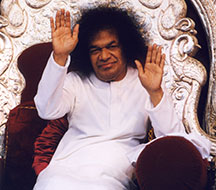
Practice human values and not preach
Puttaparthi, Poornachandra Auditorium (Sevadal Conference )
Description
One merely demonstrates the aspects of truth, non-violence, righteousness, peace and love, but is unable to experience the same. One must not only display the five qualities but also experience them as one cannot reap the results of the aspects by merely demonstrating. Man expects to be respected under all circumstances and by everybody but seldom does he respect others. Man qualifies for receiving respect from others only, when he respects others. This the very form of ‘Aham’ or the ego and one cannot experience the five aspects of truth, nonviolence, righteousness, peace and love as long as one harbours the ego. Therefore, one must strive to practice, experience the five aspects and enjoy the benefits thereof and share it with others.
Topics
-Practice
-
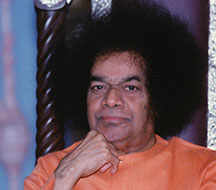
Practice is more important than preaching while rendering service
00:02:39Being called as Bharathiyas, who belong to the rich and sacred culture of Bharath, the Bharatiyas today do not possess any of the qualities of that culture. The people of Bharath consider themselves superior to others by merely preaching others through vain and pompous speeches with high sounding words. One has to put an end to such preaching which is not supported by practice. The world has never changed for better with mugged up speeches from memorised texts. One has to undertake activity with selflessness and utmost simplicity. One has to take up silent and unselfish work and has to practice the ideals before preaching and only then can one achieve success. In the land of Bharath, importance is given to practice than to preaching or pompous display. One can easily bring change in the world by practicing what is being preached. Pompous and high sounding words may bring about momentary satisfaction but will gradually lead to ruin. One has to be wary of the future outcomes.
-
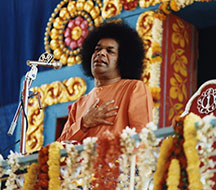
Practice is more important than preaching: Beautiful analogy of a bank
00:01:49Embodiments of the Divine Atma! Man listens and takes part in many conversations. There are many great lectures. The talks that are given and the talks that are listened to are not one’s own. One owns only that which one imbibes and holds onto. There are great banks viz, the Reserve Bank, the State Bank, the World Bank; there is a chairman to those banks but the chairman does not own even a penny. The cashier handles the cash in the bank but all the cash belongs to the bank not to the cashier; whatever amount that is deposited in his name that alone belongs to him. Similarly however great a talk that one listens to or gives are comparable to the banks- one owns only those things that he puts into practise. That alone belongs to man, which he puts into practice but not that which he listens to. Therefore to attain bliss it is important to practice that which is listened to. It may not be possible to put into practice all that is heard, but atleast one or two must be practiced to redeem oneself and that is the goal of human life.
-
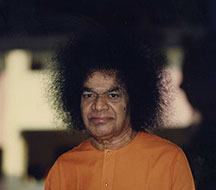
Practice is more important than preaching
00:03:14Na karmana na prajaya dhanena tyagenaike amrutatwa maanasuhu” The Vedas have taught in unmistakable terms, that only through the avenue of service we can attain “amrutatwa“or immortality. When one has one may undertake the spiritual practices of “Japa”, recitation of Lord’s name or “Dhyana”, meditation. But when the opportunity to do so is not available, it is better to undertake the path of service. Don’t take it amiss. Out of the two hundred people that have taken part in these deliberations, how many of you daily undertake “japa” or “Dhyana”? Can any state president or district president or any convenor say with conviction that he is undertaking “Japa” or “Dhyana”? When we ourselves do not practice with what authority can we preach the sevadals? People may go on preaching the importance of “japa” or “Dhyana” just because a programme is chalked out, but it is with earnest introspection alone that one can know whether he is doing so sincerely. In our organisations, whether one preaches it or not, seva and “Sadhana” or self practice should co exist. Individual “Sadhana” can be compared to the negative pole. The collective service may be compared to the positive pole. With the conjunction of the positive and negative poles we will be able to gain worldly success and prosperity.
-
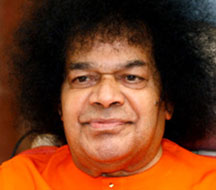
Practice is important than Preaching
00:02:46This is not something which can be described by words. One can use a hundred thousand words but to do is only one thing. Instead of uttering hundred thousand words and straining your tongue, it is much better to fructify your own life by doing one good thing. The spiritual path does not consist of making speeches on a platform but is one of actual practice. Since this has been reduced to mere platform speeches, the spiritual aspects in our country have been at a very low level. It is not as if either in this country or in other countries there are no leaders, books or teachers. There are plenty of leaders, books and teachers. In that context if we ask ourselves, "Why is it that in spite of all these things we have not reached our objective?" The answer is that, we are simply talking and not putting things into practice. Anyone we may come across wants to become a Guru or a leader. Everyone is a leader or a Guru but nobody seems to think whom we are to lead and where are the people to lead if everyone becomes a leader. Today one is a student or a disciple and tomorrow he becomes a teacher or a Guru. Because the number of such Gurus has become excessively large, there is nothing left what we can truly call as 'Guru'.
-
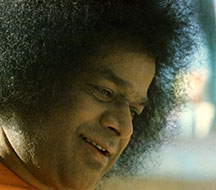
Everything in life comes by practice
00:00:56One can achieve anything by practicing constantly. One cannot sing instantaneously, one must practice. Walking also needed lot of practice from faltering steps to confident steps. Walking, talking, writing, reading - everything is achieved by practice. In a similar manner service must also be practiced. Practice is also required in contemplation of Lord. When practiced this way, all the activities become divine.
-
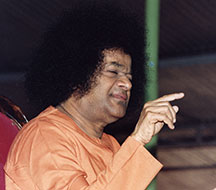
Practice leads to success: With an small analogy
00:01:38Embodiments of Love! Students! During the Summer Course, you will receive such advice from elders and from Swami. Treasure them in your hearts. However, it is not enough to merely place on record the advice heard; you must make every effort to put them into practice. It is no use locking it up all inside; their impact must be made manifest through good actions. A villager was once walking carrying a bundle of food on his head. After sometime, he found the bundle to be a burden. So he made his way to the bank of a river, sat down there, opened the bundle and ate the food in it. In a few minutes, the burden disappeared, and the food consumed gave him fresh energy. In the same way, it is only when you put into practice what you have learnt that you will gain experience and strength. In turn, this will lead you to success.
Topics
- Analogies
- Atma
- Attachment
- Balvikas
- Bhaja Govindam
- Bhajans
- Body
- Character
- Company
- Compassion
- Culture
- Day to day
- Desire
- Devotees
- Devotion
- Dharma
- Discipline
- Discrimination
- Doctors
- Education
- Faith
- Festivals
- Forbearance
- Gayathri
- God
- Gratitude
- Guru
- Health and healthcare
- HIS Life
- Human values
- India
- Karma
- Love
- Mahabharata
- Man
- Meditation
- Mind
- Music
- Musicians
- Namasmarana
- Nature
- Parents
- Philosophical concepts
- Pleasure and Pain
- Ramayana
- Religion
- Sacrifice
- Sadhana
- Sai Organization
- Saints
- Sathya
- Science
- Senses
- Service
- Sevadal
- Shanthi
- Shirdi Baba
- Society
- Spirituality
- Students
- Thoughts
- Time
- Unity
- Upanishad
- Vedas
- Vices
- Yoga
- Youth
